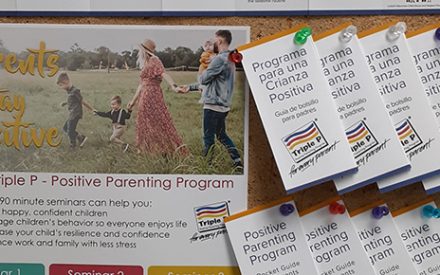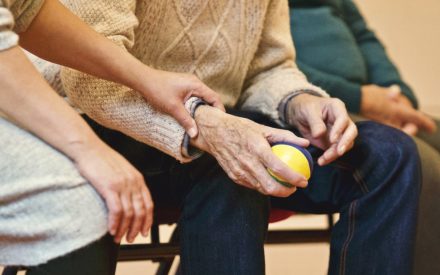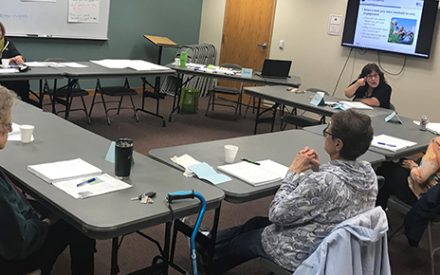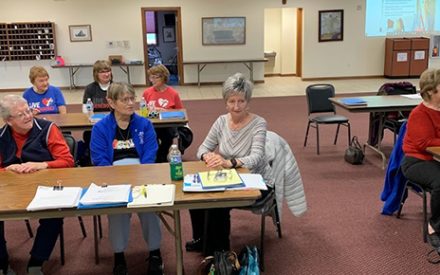As people in our communities age, their family, friends, and neighbors take on caregiver roles with little to no compensation or support. Nationwide, over 48 million people provided unpaid care to a person over the age of 50 in the last year; 578,000 of those family caregivers are in Wisconsin.
One in six caregivers maintains full- or part-time employment, and 70% of working caregivers indicated that they have suffered work-related difficulties due to their caregiver role. Caregivers may experience physical strain, financial strain, emotional stress, and other health issues. The more hours a caregiver puts in, the higher their risk of experiencing negative health impacts. Caregivers faced an even higher risk for adverse health outcomes from stress related to the COVID-19 pandemic.
Extension responds by providing caregivers with evidence- and research-based information on self-care techniques; connecting them to local resources including other caregivers within the community for support; and increasing caregiver confidence and decreasing stigma around accessing resources. Extension engages with caregivers through monthly caregiver support meetings or by request from local partnering agencies. We lead education on building resiliency, managing grief, finding joy, utilizing self-care techniques, making end-of-life decisions, and building financial health.
In 2021, Extension led 35 caregiver programs across the state. Participants in programs reported better self care; 85% of participants identified one or more new ways to take care of themselves through the program and over 60% said that they practice self-care more often or regularly than before. During COVID-19 caregivers grew more isolated from others due to safer-at-home orders that increased risk for feelings of isolation and loneliness, increased stress, and increased their risks for chronic health conditions and other mental health issues. In order to continue to provide support, we shifted programs to a virtual platform. Through this, we drew additional participants compared to prior years.
Beyond direct support of caregivers, Extension educators provided leadership to local caregiver coalitions. We assisted on issues like leadership, asset mapping and needs assessment to ensure coalitions are functioning most effectively and efficiently, utilizing resources to advance their work and creating policy and environment change within their communities. These efforts increased the resources and support for family caregivers on the local county level, and across the state.
Extension helps family caregivers support their own self-care, leading to overall improved physical and mental health outcomes for themselves and their care recipients.
The Life Span program is part of Extension’s Human Development & Relationships Institute. Learn more by visiting aging.extension.wisc.edu.
Download Article

 Supportive Relationships between Children & Caregivers
Supportive Relationships between Children & Caregivers Supporting Adults Who Experience Isolation
Supporting Adults Who Experience Isolation Improving the Health of Older Adults
Improving the Health of Older Adults Boosting Financial Skills for Social Workers
Boosting Financial Skills for Social Workers


